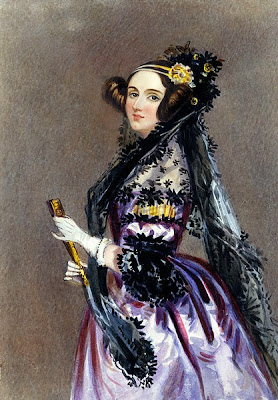Innovating Women
In September, 2014, a new book on women in STEM called Innovating Women shipped, after many months in development. I helped work on this book. The main authors are Vivek Wadhwa and Farai Chideya, an Indian-American man and an African-American woman.
A few women have asked me why a man should write a book about women in technology. The last thing we need is yet another man telling us what we already know!
I don't think it matters that one of the authors is male, as long as he's not acting patriarchal. (I don't think it matters that the other author is not really in STEM either, since she's a great writer). Both of these authors are allies.
What does it mean to be an ally? Many people have written about this, so Google it for better explanations than mine. But I think it means being a person with privilege who is operating in solidarity with someone who has been denied the privileges.
It's a tricky business being an ally, though! I know I've made numerous mistakes as I've tried to ally with friends and relatives fighting for legal same-sex marriage and African Americans fighting for justice in Ferguson, Missouri, and throughout the United States.
Sometimes allies act like they deserve a big reward for being an ally, or like they are the knight in shining armor coming to the rescue of the poor underprivileged people. That's not helpful.
The easiest mistake to make when being an ally, however, is to turn the conversation to yourself. For example, those of us who work on the "women in tech" issue hear things like:
- I've worked in tech for many years, but I've never seen any sexism.
- I hired a lot of women when I was a manager.
- I had a woman boss once and I didn't have a problem with it.
We hear comments like this from both men and women. The speaker is turning the conversation to be about him or herself. These individual experiences, with a sample size of one, do not add anything to the conversation.
Now did our male author of Innovating Women try to turn the conversation to be about himself? Is he expecting some sort of huge accolade for helping the ladies? Maybe, a little bit? Is he an ally nonetheless? YES. Here's why I think he's an ally:
- He spearheaded the Innovating Women project, then got out of the way.
- With the help of female colleagues, he opened a forum for women to discuss the challenges that we face as women in tech. Hundreds of women joined the discussion. Our content became the book.
- He did not participate in the discussions. Only women told their stories. He just listened, which is an important skill for allies.
- The book development project was crowd-funded at Indiegogo, giving lots of people an opportunity to get involved.
- Vivek and colleagues recruited numerous female role models to tell their stories, including Google[X] VP Megan Smith (possible next White House CTO!), venture capitalist Heidi Roizen, and Anousheh Ansari, a serial entrepreneur and space explorer.
- Vivek took on the old boys' club. When he first started writing about women in tech, men were extremely critical of him. Vivek didn't stand down. He argued with them. So, he's not just talking to women about what we need, as some of his female critics have assumed. He's talking to his own people too (men). That makes him a good ally.
- Vivek will not directly benefit from the book. The profits will go to a fund at Singularity University to educate women about advancing technologies and to fund their startups. As far as Vivek "building his career, reputation, fame on women in tech issues," as a Twitterer said, that's bunk. He is already famous.
The decision that someone is an ally resides with the person being allied, not the ally, according to Jamie Utt in this terrific article, "So You Call Yourself an Ally: 10 Things All 'Allies' Need to Know."
So Vivek doesn't get to crown himself Mr. Big Super Ally, but I get to declare that I think he is an ally. Other women can make up their own minds, but I consider both Vivek Wadhwa and Farai Chideya allies of women in tech.
By publishing a book that showcases the words and work of successful women in tech, the authors are helping women learn strategies to overcome artificial barriers. And by focusing on innovation, the book will help organizations learn how to benefit from the creativity and intelligence of all people, not just men.
 |
| Innovating Women: The Changing Face of Technology |

















